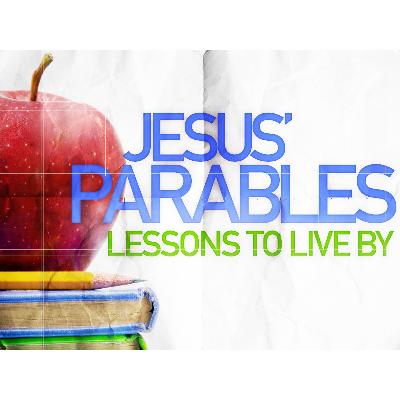SERMON SUMMARY
In Matthew 18:21-35, we find a parable that focuses on forgiveness. From it we can glean several principles that will enable us to set others, as well as ourselves, free, as we extend forgiveness. In this passage, Peter asks Jesus about his obligation to forgive when a “brother” or fellow believer wrongs him. Jesus responds, “I tell you, not seven times, but 77 times. Jesus’ point is that we are not to place numerical limits on forgiveness. Jesus teaches that forgiveness is rooted in God’s grace and mercy. In this parable, the King represents God, and the first servant represents us. The servant owed a debt he could never repay. Justice demanded that this servant, his family, and all that he owned be sold and repayment made. Likewise, our sin is so abhorrent and grievous to a Holy God that there is absolutely nothing we can do to earn God’s forgiveness. The only hope we have is God’s mercy and grace. In Jesus Christ, that is exactly what we have.
In our parable, the servant needed mercy, not justice. So he begged the king for patience, promising to repay the debt. We are told that the king felt compassion on the servant, and in his mercy, forgave the debt—all of it! That is exactly what God has done for us. He forgave a debt we could not repay. Now this servant, who has just been forgiven a $12 million dollar debt, goes out and finds another servant who owes him the equivalent of $20. When this servant can’t repay, he begins to choke him and demand that repayment be made. This poor slave responds just as his accuser had earlier. He said, “Have patience with me and I will repay you.” You would think that in light of his own encounter with mercy, he would be quick to forgive a debt so small in comparison to his own. But no. He was unwilling to forgive the $20 and had his fellow servant imprisoned.
The king learned about this incident and it angered him. So he summoned the unforgiving servant and said, “You wicked slave, I forgave you all that debt, because you entreated me. Should you not also have had mercy on your fellow slave, even as I had mercy on you? (vv. 32-33). The implication for us is clear. Our forgiveness of others is rooted in our understanding of God’s forgiveness of us (Ephesians 4:32). We are to forgive others just as we have been forgiven—graciously, freely, and unconditionally.
In this parable, sin is likened to a debt owed. In keeping with that analogy, forgiveness is likened to a debt canceled. When you forgive someone, you set that person free from any obligation to you as a result of a wrong done against you. If you have truly forgiven someone, you don’t keep bringing up past offenses. Forgiveness doesn’t mean that you instantly forget the wrong perpetrated against you. When the Bible says that God forgets our sins, it simply means that he no longer holds our sins against us. In the same way, Biblical forgiveness involves a commitment not to hold an offense over the offender’s head. It means we don’t tell others about it. It means that we don’t dwell on it personally.
Forgiveness is never easy, but it is freeing! Forgiveness postponed leads to resentment, anger, and bitterness. A person who has an unforgiving spirit is always the real loser. Bitterness will destroy you and steal your joy. It inevitably spills over into other relationships, including your fellowship with God. What burden of the past do you need to be freed from? Whose face has the Spirit of God flashed across the screen of your mind? A spouse, a friend, a child?
Will you extend the same forgiveness to him or her that God has extended to you?
APPLICATION / CHALLENGE
- Receive God’s forgiveness in Christ. Click here to learn more.
- Ask the Holy Spirit to show you who and what you need to forgive.
- Choose to forgive, releasing the person from the debt you think they owe you.
- Recognize that forgiveness is both an event and a process—and forgiveness is not a feeling.
- Thank God for using each person to deepen your insight into grace and to conform you to Christ.


